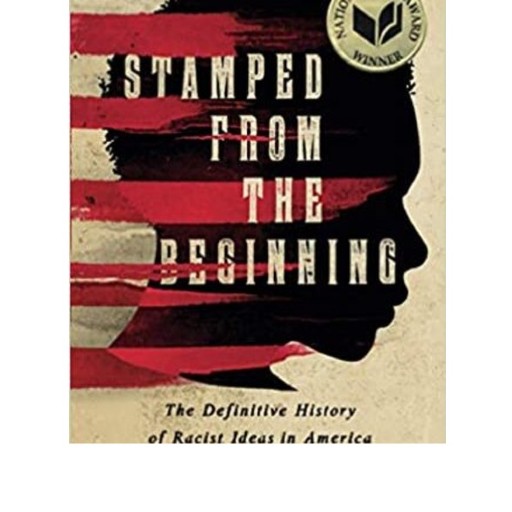
By Ibram X. Kendi
Reviewed by Carol Moeller —
How fitting I’m reviewing Ibram X. Kendi’s biography of racism on our new national holiday, Juneteenth, which celebrates the final elimination of the last holdout of slavery two years after the Emancipation Proclamation. This book delved deeply into the origins, spread and continued nurturing of the idea that those who look different from us are somehow inferior. Did you know the word “slave” evolved in the 15th century from the Eastern European Slavic people who were the original slaves in English-speaking countries? Early “climate theory” espoused that those from more temperate climes were “sluggish” in both actions and intellect, so less a fit to be self-governed, and therefore more fit to be enslaved.
Kendi explains racist ideas didn’t necessarily arise from ignorance or hatred. They were consciously created to justify and rationalize original racial inequities, which have now become deeply entrenched in policy. Essentially, racism is the result, not the cause of inequality. From those we know to have owned slaves, like Washington and Jefferson, to those who did not but whose unwitting well-intentioned furtherance of inequality, all contributed to a distorted viewpoint. Of the latter, even Abraham Lincoln encouraged freed slaves to relocate to Liberia, calling them selfish if they did not. Proposing the relocation of black Americans enabled even abolitionist white Americans to denounce black citizenship.
Rather than accepting those from other cultures and races for who they are, Kendi sees the “melting pot” vs “salad bowl” viewpoint, forcing people to “assimilate” into the white ideal, thus putting the fault of racism on those being discriminated against. The once popular idea of “uplift suasion” claims whites could become less racist if more blacks became prominent citizens, again putting the onus of eliminating racism on those being discriminated against.
Because Obama was elected, there are those who insist the US is now in a post-racial era. Anyone examining the news regarding police brutality numbers of whites vs blacks, or voter suppression in heavily black areas, can attest that this is not even remotely the case. We might be post-slavery, but not post-discriminatory, so the focus of this book is to force us to look at our history through a clear lens and bring that clarity into policy-making today.

Leave a Reply